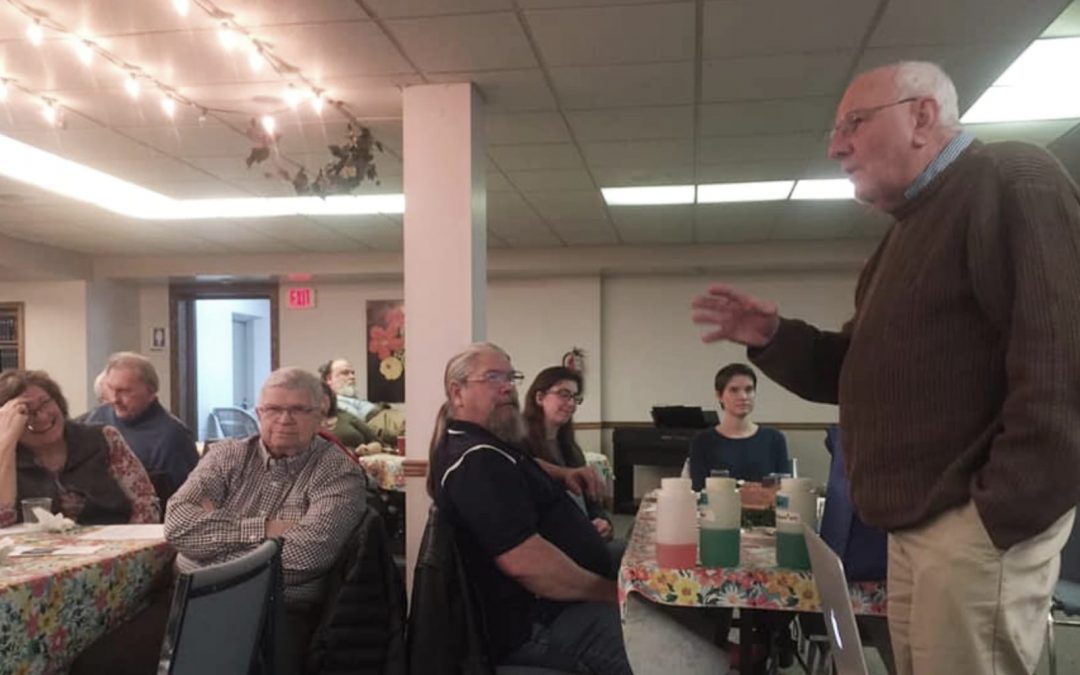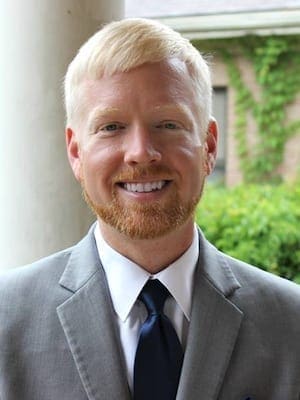A Baptist and a Catholic sit down for coffee.
The Catholic says, “We need to save our planet.” The Baptist says, “We will serve the potluck.”
OK, so that’s not exactly what happened, but it’s close.
Recently, an ecumenical gathering in the name of creation care was led by a Catholic church at a Baptist church in rural eastern Kentucky.
This is significant for a number of reasons.
- Kentucky is thoroughly a “red” state where many vehicles proudly display “Friends of Coal” bumper stickers.
- Baptists, especially in the rural south, have championed a theology concerned more with instantaneous divine transport to eternal bliss over any theology that concerns itself with creation care.
- Baptists and Catholics do not tend to work together.
Despite all this, the need is so pressing that Christ-followers of many flavors got together to talk about what needs to be done.
They drove from the city, the suburbs and rural areas. They passed rolling hills, some of which had been decapitated for their resources.
They passed flowing waters, some of which had been unintentionally poisoned by neglectful businesses and homeowners.
They came to a church that recycles, but still has plastic foam cups available. (Yes, we still have much to learn.)
They were greeted by a Baptist minister and then inspired by a Catholic father named John Rausch.
“Did God create the universe in six or seven days?” he asked. Before anyone could respond, he proudly exclaimed, “Seven!”
On the seventh day, God appreciated all of creation and called it good.
“Why didn’t God call creation useful?” Father Rausch wondered aloud.
Because creation is inherently good.
Creation is as inherently good as we are, the self-proclaimed pinnacle of creation.
If it is good, we must care for it in the same way we care for each other.
Rausch called those gathered to be co-gardeners with God.
Christians are quick to spiritualize everything, like creation care, while Rausch was very practical. He offered three principles to live by:
- You have to have enough to be more.
- Less is more.
- Strive for well-being with the least consumption.
The degradation of the earth affects all of creation, beginning with the least of these among us. If we believe God desires for all people to live full, healthy lives, it requires a creation-wide focus.
Who is affected most by the inaccessibility to uncontaminated water? The poor.
Who is affected most by an ever-increasing onslaught of flooding? The poor.
Who is affected most by particle inhalation caused by strip-mining? The poor.
If the human race is ever going to reach collectively its fullest potential, the world around us needs to be cared for in a way that allows all people to live. Live better? Sure. First, though, let’s give them the opportunity to live at all.
Every person who attended this gathering knows we need to act. Now. My assumption is you believe the same.
After Rausch inspired us, Chris Barton, professor of forest hydrology and watershed management at the University of Kentucky, gave us the practical plan to move forward.
Barton explained many of the unique and subtle ways our innovative culture has pressed the environment beyond what it can sustainably handle.
He then told us there is something we can do, and it is simple: Plant trees.
For eight consecutive years, the annual United Nations gathering on climate change has called for nations and individuals to plant trees. In doing so, we can begin to slow down and, potentially, reverse the effects of climate change.
Looking forward, these Baptist and Catholic ministers will now stand up together, throw away their biodegradable coffee cups and walk out into nature in order to plant more trees.
Specifically, we have targeted a watershed in Rowan County, Kentucky, and will plant trees for an entire day in April. We will call on all our sisters and brothers who share this terrestrial ball to join us.
We will work to save our planet by caring for the parts of creation nearest to us. If Baptists and Catholics in rural Kentucky can work together for this cause, I believe we can save this planet and give full life to all who live on it.


